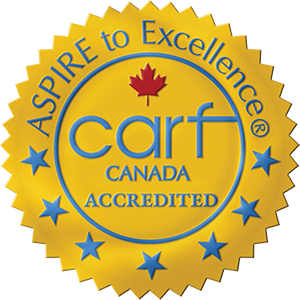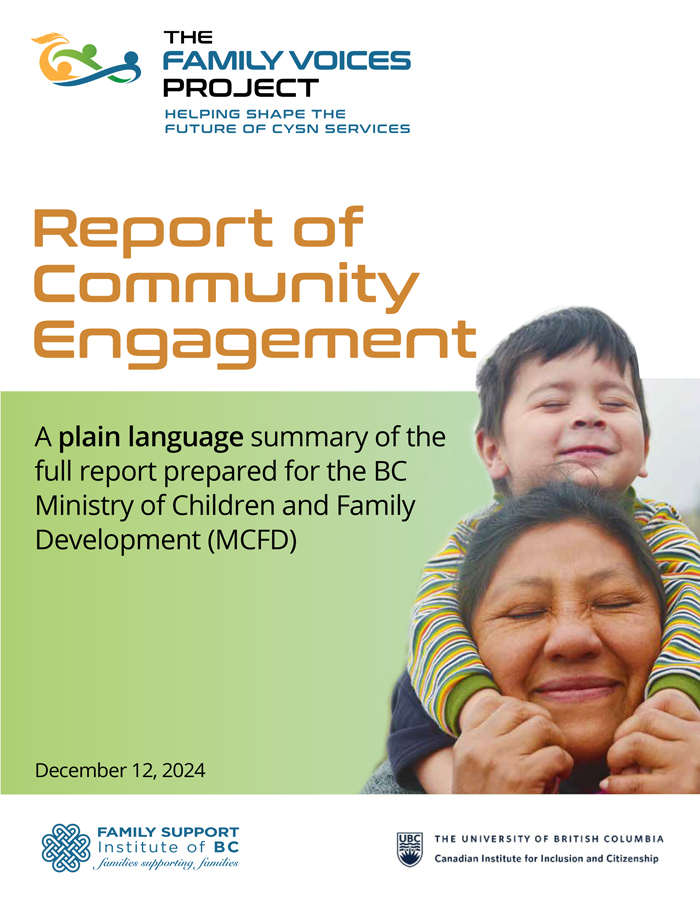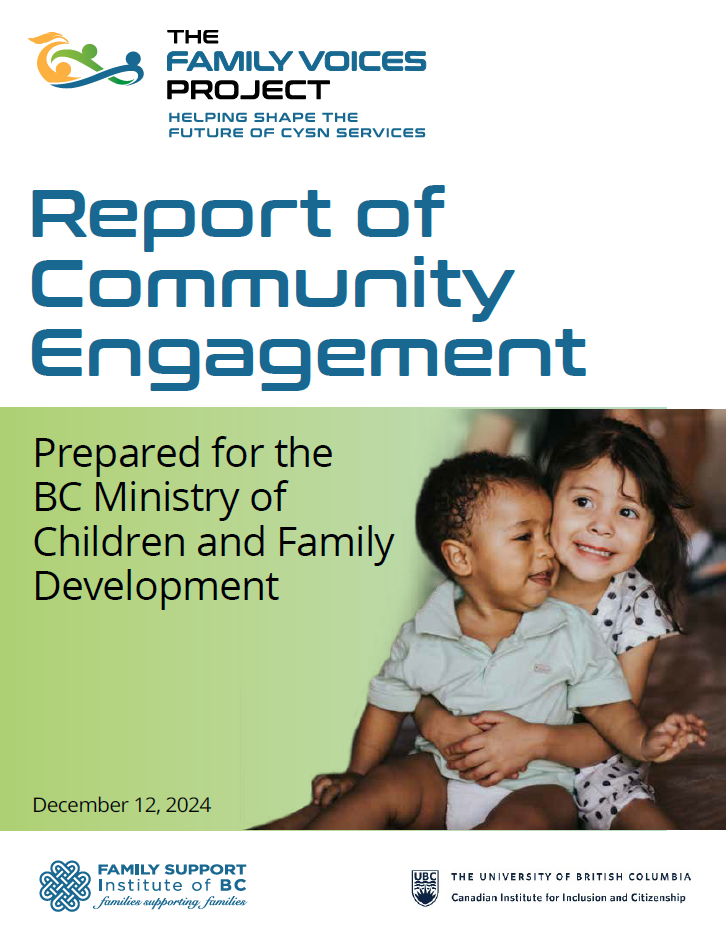
The Family Voices Project is a collaborative initiative aimed at gathering the invaluable insights, experiences, and desires of families with children and youth who have disabilities.
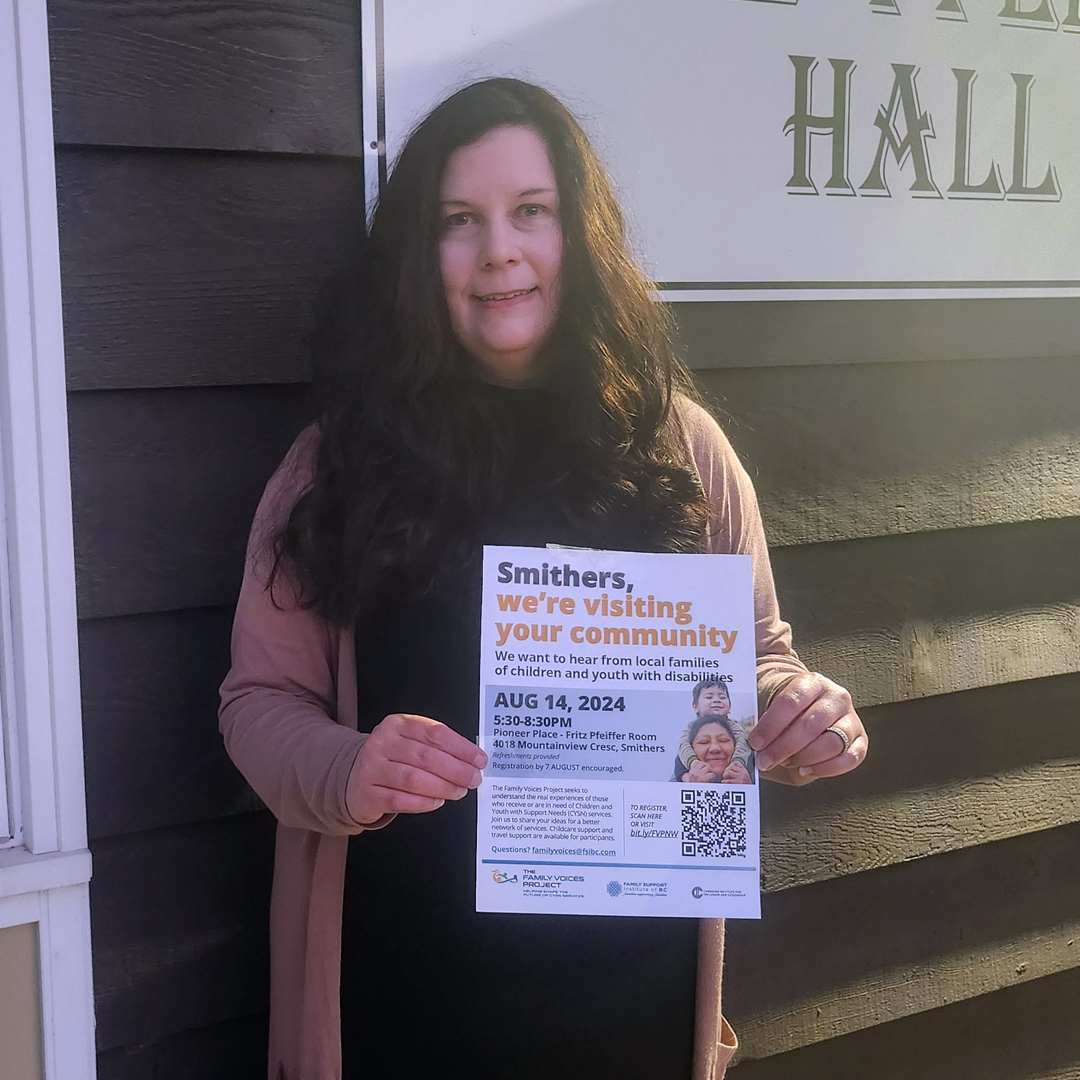
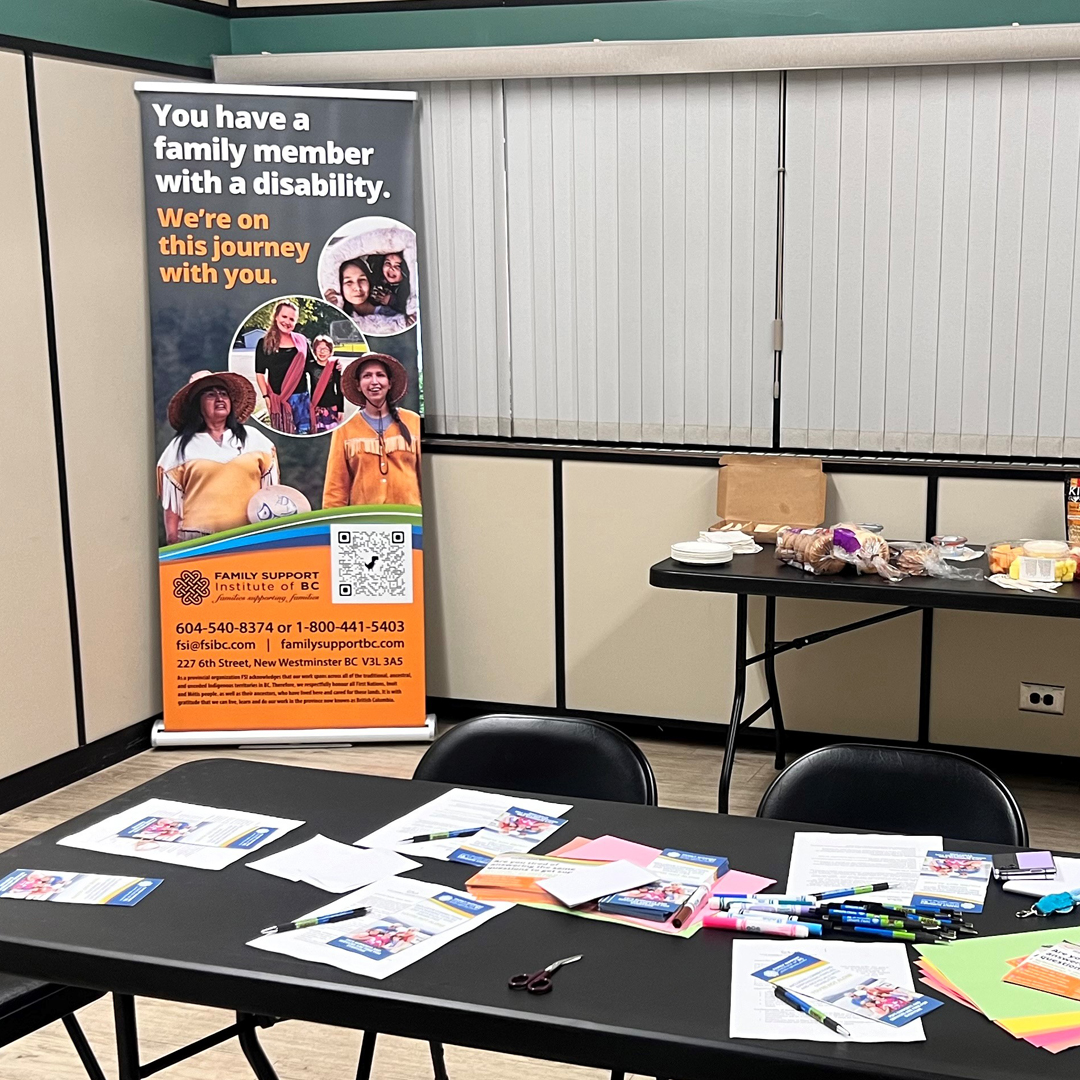
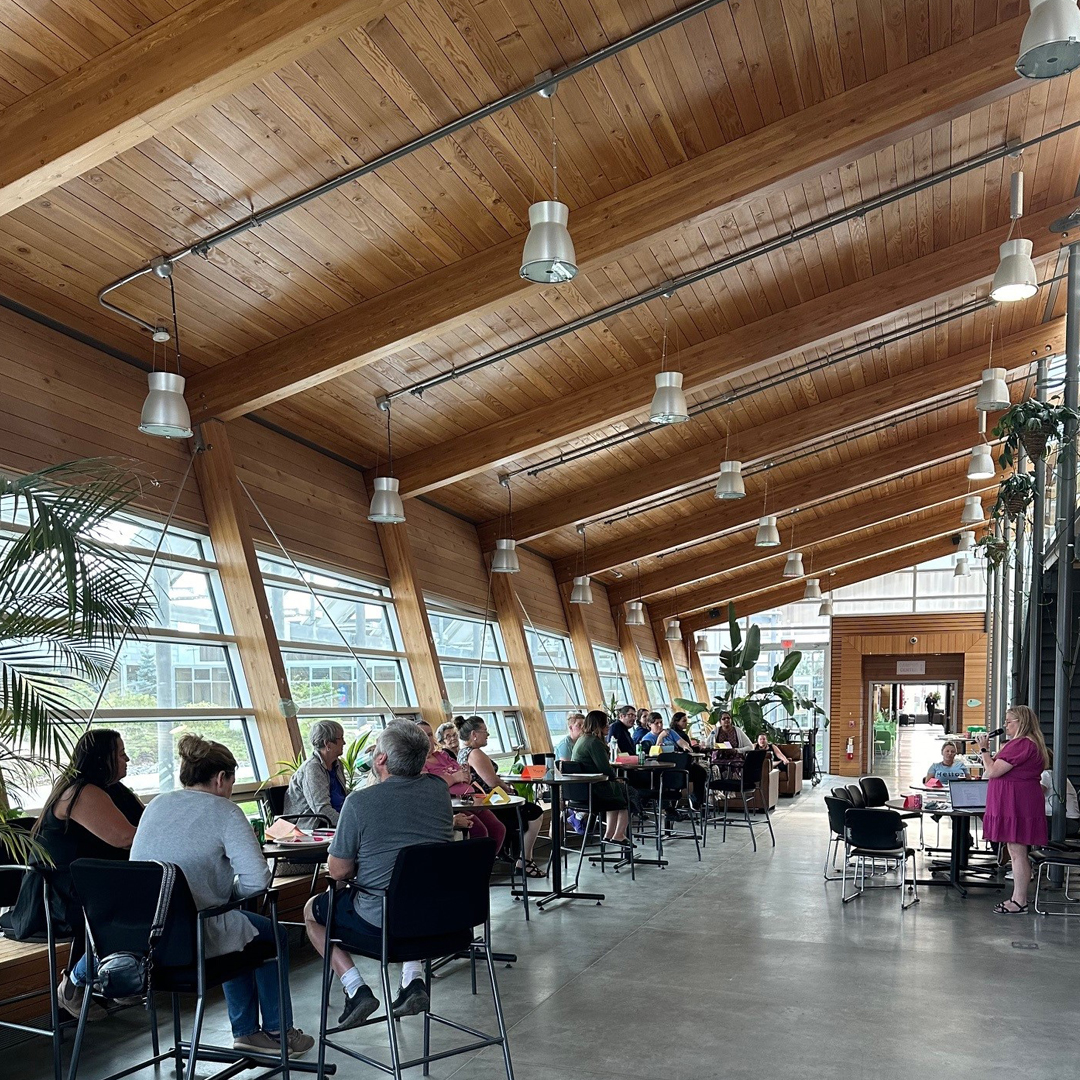
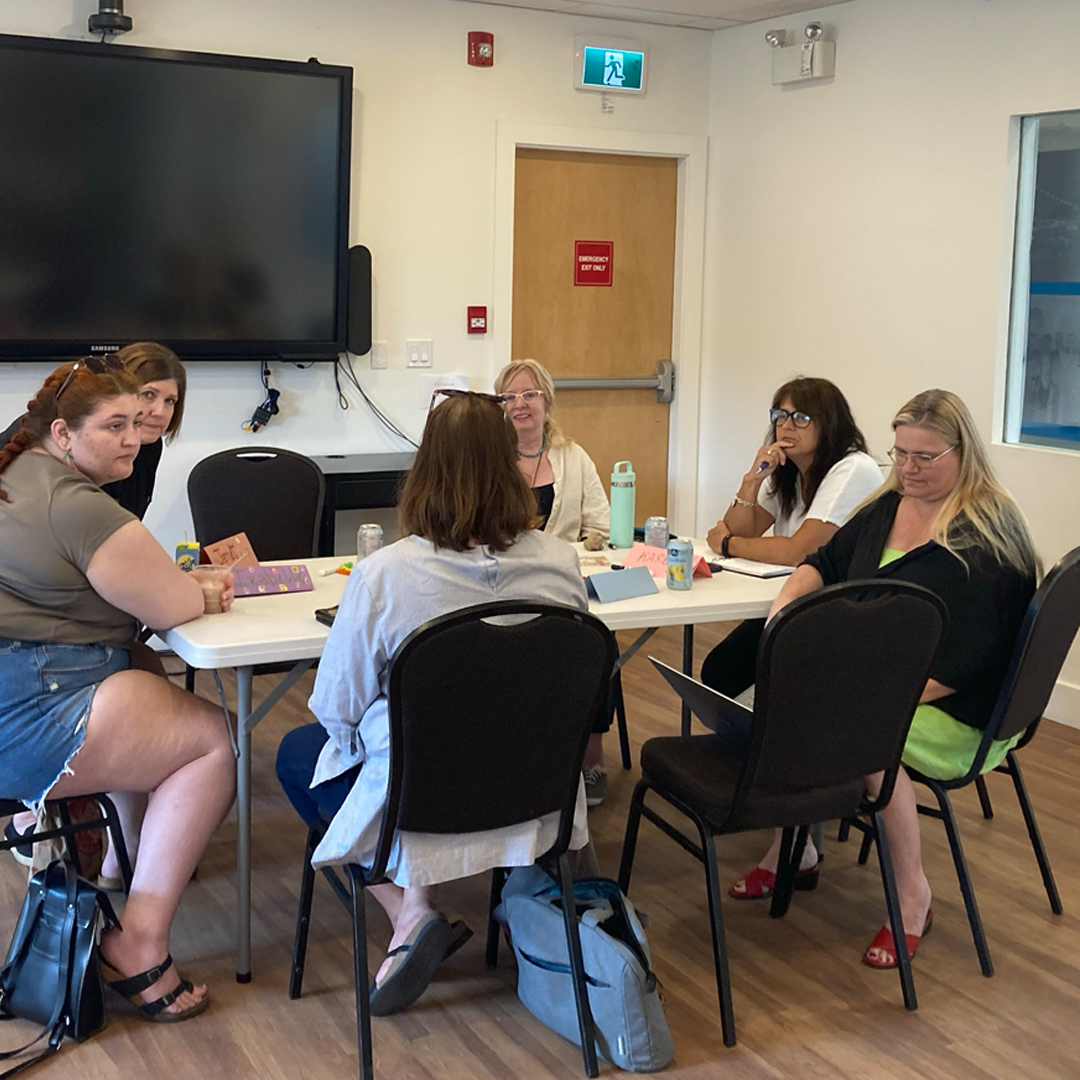
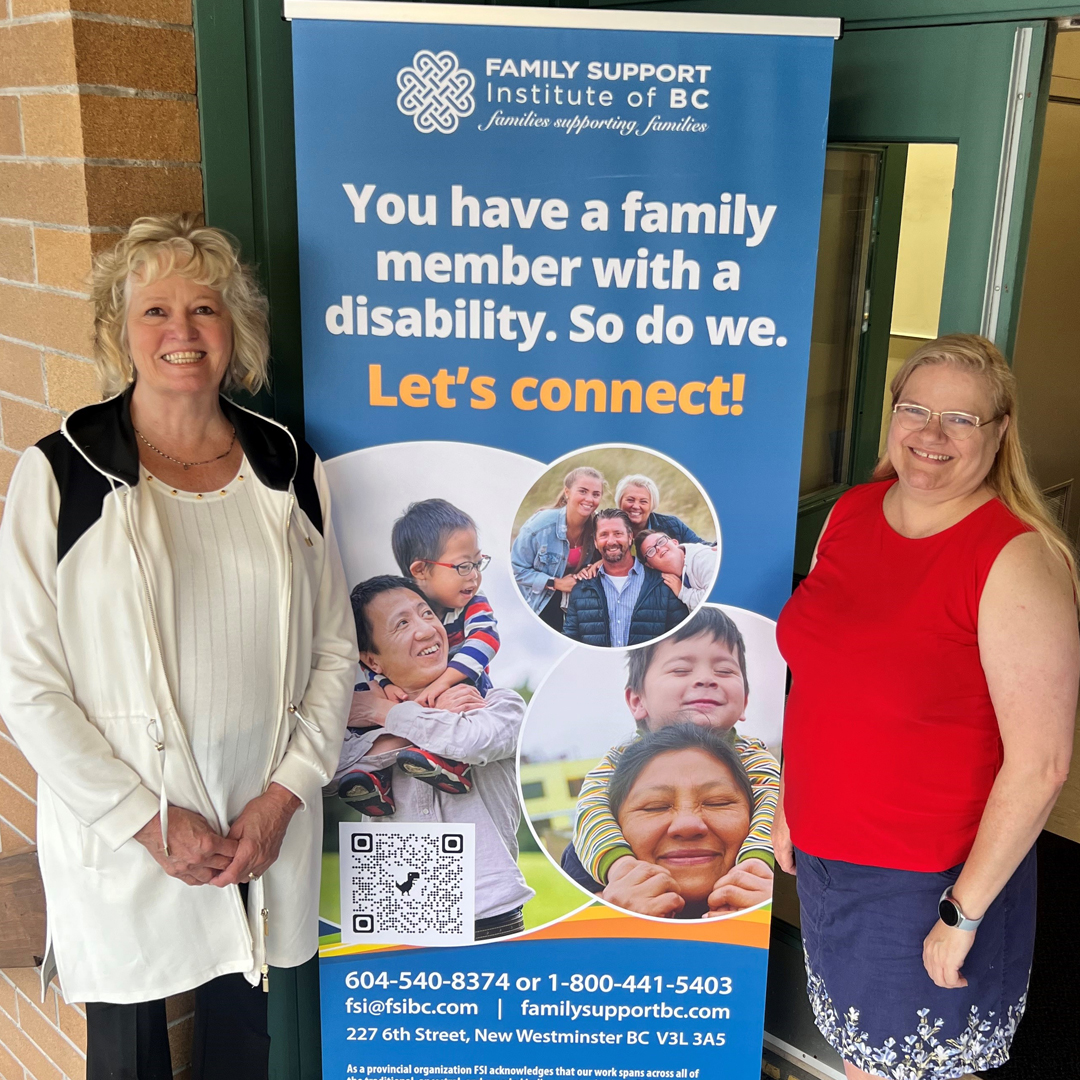
The Family Voices Project
June 2025 Update: The Family Voices Project is now complete. We thank everyone who joined us in communities across BC, in-person and virtually. If there is anything you would like to share, please let us know!
You can reach us by email at or phone at 1-800-441-5403.
Project Activities
Amplifying the voices of real families is at the heart of what we do. The Family Voices Project is a community engagement initiative by the Family Support Institute of BC (FSI), aimed at facilitating conversations with individuals and families with lived experience of disability in BC.
In Phase 1 (July to September 2024), we gathered experiences and feedback on what has and has not been working in the current system for Children and Youth with Support Needs (CYSN). The Family Voices Project brought us into conversation and community with families across BC, as part of a research project in collaboration with the UBC Canadian Institute for Inclusion and Citizenship (CIIC). A main finding of this research was the importance of and need for family agency, advocacy, and engagement. Many parents expressed the feeling that their voices are marginalized in discussions about their child or youth’s needs.
This research is detailed in our Phase 1 report, The Family Voices Project: Helping Shape the Future of CYSN Services in BC, which has been written in a way that honours the words and experiences of the participants who generously shared their stories and perspectives. Overall, these community conversations provided a valuable platform for families and self-advocates to voice their concerns, share successes, and contribute to the future shaping of support services in BC. The report provides information that can be used by families to advocate for better support and services, and will be used by FSI in conversations and advocacy across government Ministries.
In Phase 2 (March to July 2025), following the release of the report, we are committed to returning to community. We will present a discussion of our findings from the report, talk about what we learned, and what we will do with the information that communities shared with us.
Phase 2: Join A Report Back Session
In 2025, we are excited to continue our journey of connecting and learning together in community. In this phase of the project, we report back to the communities we visited last year as well as commence engagement with communities we did not visit last year.
Our virtual Report Back sessions will take place online on Zoom, facilitated by our CIIC research team in collaboration with Family Voices team members. These virtual sessions are open to all self-advocates and families supporting individuals across the lifespan, from any community in BC, whether or not you attended a community engagement session in Phase 1.
We will continue to run several of our in-person community engagement events. During Phase 1 of this project, we heard many of you say you wanted more practical support. So in this phase, our community engagement sessions will build in workshops and training for families. Our goal is to strengthen local networks, provide direct training, and ensure families have the tools they need to navigate support systems effectively.
Each in-person session will be approximately three hours and will include:
✅ Welcome & Introductions
✅ Family Voices Report Update – Key findings and how the information will be used
✅ FSI Resources & Supports – Who we are and how we can help
✅ Training & Advocacy Workshops – Sessions may include:
Advocacy
Effective advocacy skills help us and others get the support and services our families need while strengthening our communities. We will look at the different types of advocacy, the roles of various organizations, various communication styles and how they are critical in effective advocacy, conflict resolution, how effective advocacy strengthens communities, and the advocacy process. This workshop is interactive and practical and emphasizes good communication, negotiation, and assertiveness skills.
Inclusive Education
The objective of this workshop is to assist caregivers to become more effective partners in their child’s education. This workshop will provide an overview of the education system in BC, as it relates to families who have children with extra support needs. In particular, we will look at the roles and responsibilities of parents/caregivers and students, the parent/caregiver’s role in partnership and planning, important legislation and policy around inclusive education, and tips for education advocacy.
Transitions
This workshop is designed to support individuals with disabilities and their families as they navigate the transition from high school into adulthood. The session will emphasize the importance of Person-Centred Planning, helping families explore future possibilities that align with the unique strengths, interests, and goals of their loved ones.
Participants will gain a deeper understanding of the adult support landscape, including services and funding options such as Community Living BC (CLBC), Persons with Disabilities (PWD) benefits, individualized funding, employment supports, post-secondary pathways, and other essential resources. The workshop will provide practical guidance, answer common questions, and connect families to tools and networks that facilitate a smooth and informed transition.
✅ Opportunities to Connect & Share – Time to engage in conversation and build relationships
✅ Hybrid Participation – Join either in-person or online!
FSI acknowledges that the work of the Family Voices Project takes place upon the traditional, ancestral, and unceded Indigenous territories in BC. Therefore, we respectfully honour all First Nations, Inuit and Métis people, as well as their ancestors, who have lived here and cared for these lands. It is with gratitude that we can live, learn and do our work in the province now known as British Columbia.
Event Listing
Project History and Phase 1
The Family Voices Project began in January 2024 as the Family Support Institute’s project to inform Children and Youth with Support Needs (CYSN) services in BC, in collaboration with the UBC Canadian Institute for Inclusion and Citizenship (CIIC). Beginning the end of 2023, we sent out surveys to assess and determine what the needs were in communities and regions around BC. Between April and September 2024, FSI and CIIC set out on a community engagement journey across the province to gather stories on what has and has not been working in the current system for CYSN. We connected with BC families and youth self-advocates who currently have, or are in need of, CYSN services and supports.
The Children and Youth with Support Needs (CYSN) program through the Ministry of Children and Family Development (MCFD) offers various services, including the At Home Program, Autism Funding, respite care, key workers, and some specialized therapies, family support, and medical benefits. CYSN services are for children and youth from birth to 19 years of age who are BC residents. Children and youth eligible for these programs include those with developmental delays, autism, and some complex health needs.
In total, we conducted 17 community gatherings. Our research partners at CIIC met with 46 participants virtually through a combination of focus groups and individual conversations by phone or Zoom call.
Here is a map showing the communities we visited in-person:
Community Engagement Sessions
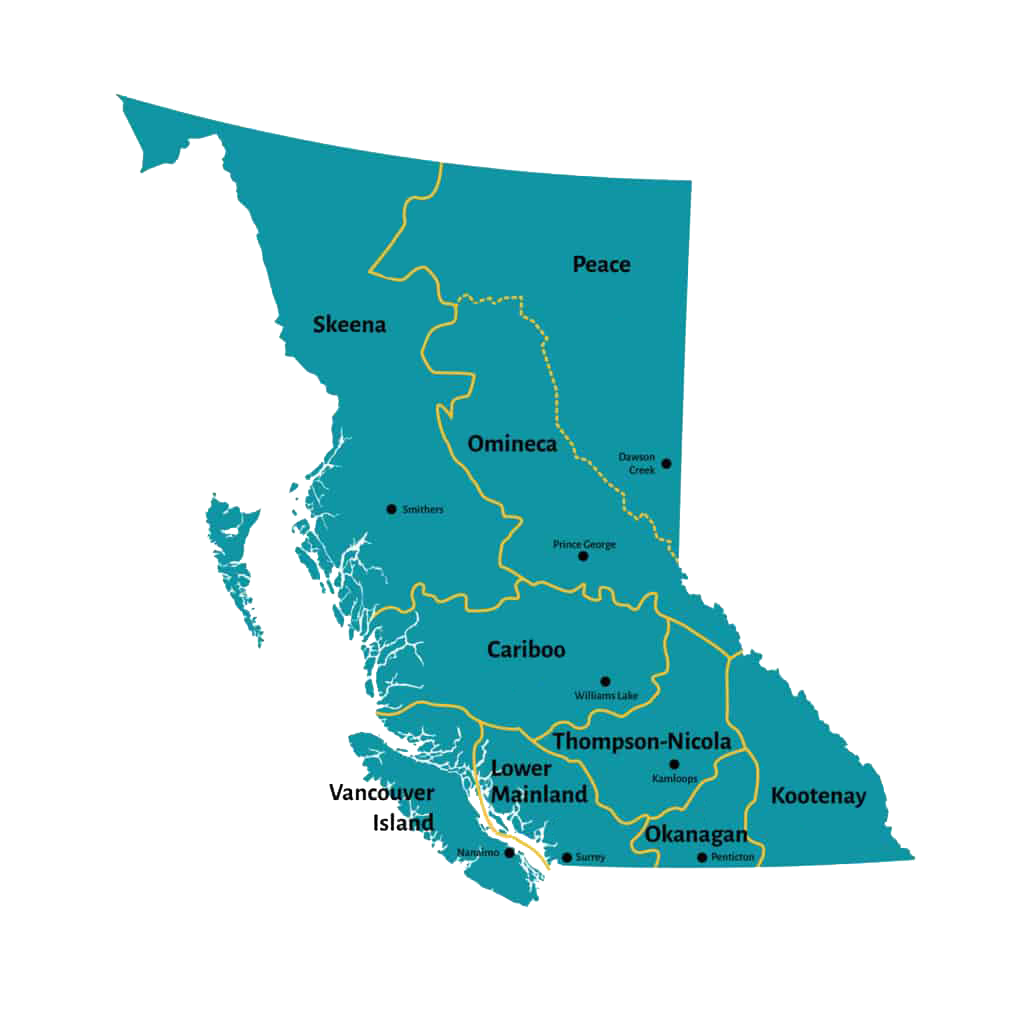
Coast (Sechelt,
Gibsons)
Kelowna, 100 Mile House,
Williams Lake, Quesnel)
(Dawson Creek,
Fort Nelson,
Fort St. John)
Daajing Giids)
(Prince Rupert,
Terrace, Smithers)
More information about Phase 1 engagement
Where did this start?
The landscape of support services for children with disabilities in British Columbia (CYSN) has been undergoing changes. In 2020, the Ministry of Children and Family Development (MCFD) launched a new service model with their intention of improving services for families and children with disabilities and support needs. During this announcement MCFD advised that Autism funding would also cease in the coming year for families who receive individualized funding, and all services would be delivered through “Hubs” or “Family Connections Centers” in communities. The announcement left many families with more questions than answers, feeling unheard, in an upheaval, and apprehensive about the future wellbeing of their loved ones. The new model, while aiming to streamline services, resulted in limited options and choices for families. Moreover, it became evident that the model lacked a culturally safe and trauma-informed approach.
What is the re-set? What are the 4 pilot regions?
In response to these concerns, Premier David Eby along with MCFD have re-set the Provincial roll-out to the service model, scaling it back to 4 pilot regions to better understand its impact. Premier Eby reinstated individualized funding for autism as well during this re-set. Recognizing the importance of directly engaging with families accessing Children and Youth with Support Needs (CYSN) services, a few organizations have been granted the opportunity to work closely with these families. The objective is to gain deeper insights into their experiences within the current CYSN framework and to gather their perspectives on shaping the future of these services.
Who is doing this engagement work?
There are 4 organizations who have been offered the opportunity to engage with families: Inspire Kids FASD Support Society, ADHD Advocacy Society of BC , BC Disability Collaborative, and the Family Support Institute of BC. Each group has been asked to engage with specific groups of people, and we have been meeting to discuss ways to coordinate and collaborate to ensure we are not redundant and are working together in our efforts. Additionally, MCFD is working with Reciprocal Consulting to engage with First Nations, and some other groups who were contracted before this announcement including Inclusion BC, BC Association of Child Development and Intervention (BCACDI), BC Association of Friendship Centres, and the Federation of Community Social Services (Community Collaborative).
What will FSI do?
FSI has been asked to engage with 4 groups of people:
- Families of complex kids
- Transitioning youth
- Families of kids who have dual diagnosis (a disability combined with a mental health condition)
- Self-advocates
As part of our grant, FSI has partnered with the UBC Canadian Institute for Inclusion and Citizenship (CIIC) to conduct research on the findings derived from these family engagements. The intention behind this collaboration is to ensure that the stories and data collected continue to drive ongoing strategies to hold MCFD accountable to what they hear from families now and into the future.
To achieve this, we plan to conduct an extensive research project, employing methods such as online surveys, one-on-one interviews (online and in person), focus groups (online and in person), large group meetings (online and in person), and a provincial tour (options for hybrid). Our aim is to connect with individuals and families in ways that resonate with them, ensuring that we capture the most valuable information possible. All options will be accessible, and we will do our best to reduce any and all barriers for families to ensure we can hear from those that want to participate.
What can FSI pay for?
Gift cards: For families that participate in the online focus groups or the 1:1 interviews, these will be conducted by the CIIC and follow research guidelines. These families will receive a $25 gift card for their participation.
For the families that participate in hybrid sessions and in person sessions, these sessions will be conducted by FSI and will utilize the same interview questions that the CIIC will be using. We may be able to also provide a $25 gift card to these families, but this will only be determined after we know how many people we will be meeting, based on your responses to the Engagement Survey, as this aspect is unknown and needs to be budget determined.
Childcare: FSI can provide childcare reimbursement to families who want to participate in this project (either in person or online). Please tell us your anticipated childcare expenses in the Engagement Survey as this needs to be pre-approved in advance.
Travel: We can reimburse mileage for those who need to travel to the sessions we book in person or online. Tell us in the Engagement Survey about your needs in this area. These will also need to be pre-approved in advance, since the project has a specific budget, and we have no idea the number of people who will request this funding. In order for us to manage this budget, we need to know in advance how much funding is being requested to be able to accommodate the requests. Much of our budget is going towards this budget item.
Report release
In December 2024, we released our final research report, The Family Voices Project: Helping Shape the Future of CYSN Services. We submitted the report to the Ministry of Children and Family Development (MCFD) to inform how they deliver CYSN services. This report contains an in-depth analysis of the first-hand accounts shared by self-advocates and families during our community engagement phase. Analysis of the accounts revealed consistent key themes in families’ experiences and challenges with the current CYSN system. This culminated in a set of recommendations for improvement in service delivery organized around the need to a) invest in families, and b) implement systemic and structural change.
The full report, modified for more reader-friendly formatting (54 pages), is available for online viewing or download. We have also released a summarized, plain language version of the report (11 pages) that captures the main points from each section.
The voices we heard during our initial community survey as well as Phase 1 engagement communicated to us that families still have so much more to say. There was also a felt need, across the province and particularly in the Northern regions, for greater availability of resources, information, and support through knowledge exchange for family caregivers. Thus, following completion of the final report, our journey continues. We now embark on Phase 2 of the Family Voices Project.
Join a community engagement session
Registration is now open for Phase 2 sessions.

